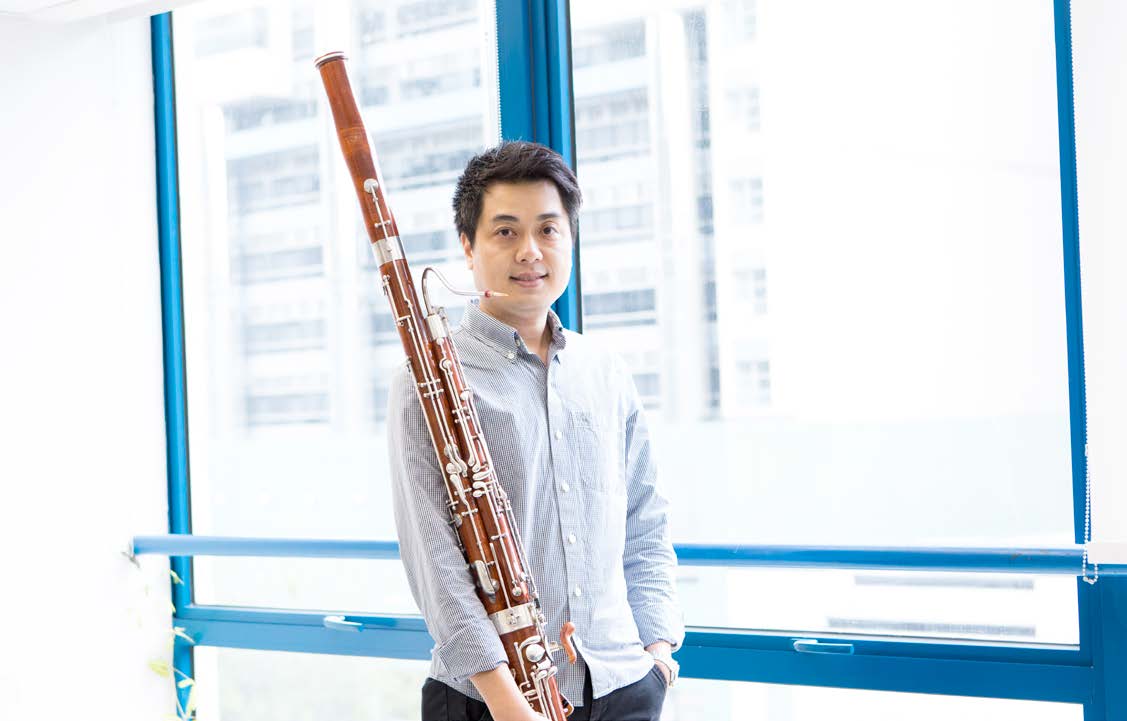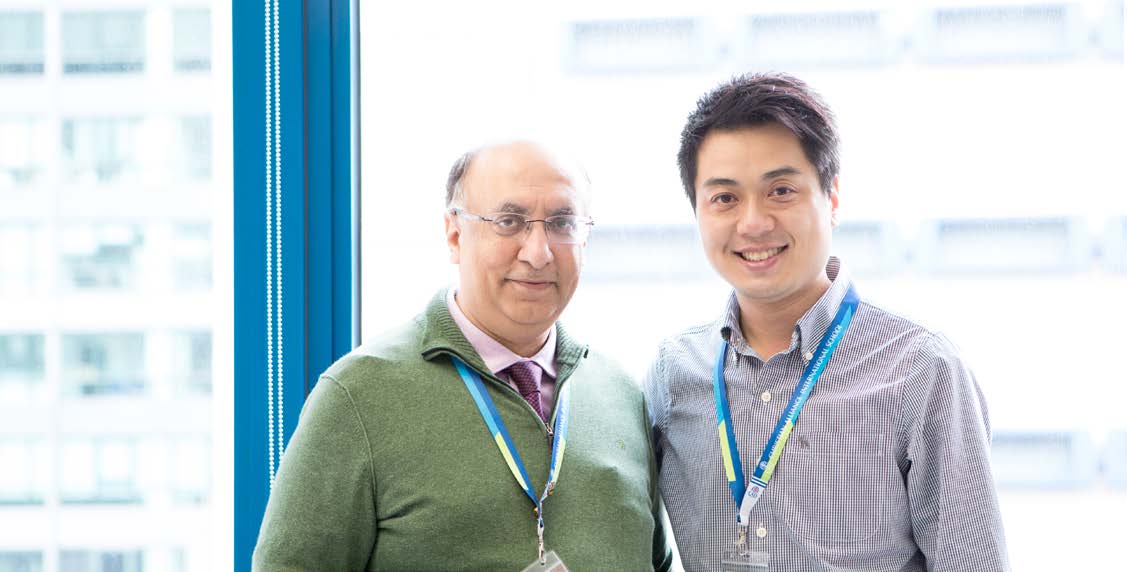A passion for music and music education #5 of 7
June 2, 2020
We sit with accomplished musicians heading the CAIS Specialized Orchestral Training Program and ask them to take us to the beginning of their musical journeys, what inspired them, how they nurtured their passion and talent for music, their professional careers and what led them to teach music to others.
Oboist/ Bassoonist – Kevin Lee
The Clown of the Orchestra
“The bassoon is one of the most difficult instruments in the orchestra to play but its role is vital”
“The instrument itself looks like a bedpost”
“The bassoon has become familiar, in anatomical terms, to the human appendix”
“The tone of the music is so companionable, so delightfully talkative, so attuned for every pure soul that until the Day of Judgement, the bassoon can never be dispensed with. It assumes all roles: it accompanies martial music with manly dignity; it is heard majestically in Church; it sustains the opera; it reasons with wisdom in the concert hall, gives a swing to the dance and fulfills every requirement” (Poet C.F.D.Shubert d.1791)
At least that is what my research – the bassoon had a fascinating history. Why would someone decide to play it for a living? In this interview, I talk with Kevin Lee who plays the bassoon and oboe professionally and asks him to share with our readers how he got started on his musical journey.
Vinod Khiatani (VK)
Kevin Lee (KL)
 Let’s start from the beginning. I’ll be honest – I didn’t know what a bassoon was until I looked into it and I must say it has an unusual history. The remark I thought most interesting was the bassoon was the “clown of the orchestra”
Let’s start from the beginning. I’ll be honest – I didn’t know what a bassoon was until I looked into it and I must say it has an unusual history. The remark I thought most interesting was the bassoon was the “clown of the orchestra”
It is true, I think, It is the most misunderstood. It may seem like it is not necessary. It has this awkward shape and it is a large piece of the instrument but it plays a vital role in the orchestra. In fact, every orchestra would have at least two or more bassoon in it. It is the bottom part of the wood wind family.
How did you get started? I can’t think of any student at a young age who would say I would like to play the bassoon.
I did not start out with the bassoon. I started out at age 6 playing the violin but after a year, I gave up. I found that the posture to play the violin to be too awkward for me so I gave up. At age 9, I had the desire to pick up some instrument and two choices were before me – the bassoon or the saxophone.
My family has always loved music and if we were not going to concerts, we were listening to classical music at home. My mother gave me an advice I thought was very profound. She told me that the saxophone has a rude personality while the bassoon was shy and quiet nature more aligned with my personality. And besides if I learned the saxophone, I would not play in an orchestra but if I played the bassoon, I could have the opportunity to play in an orchestra if the opportunity presented itself.
In almost all of our interviews in this series, mothers played a pivotal part in fostering the child’s lifelong interest in music. Is that the career she envisioned for you?
I don’t know but I listened to her and chose the bassoon. My teacher who taught me was a wonderful teacher. He was always encouraging me and praised my efforts. Through his guidance, I was directed to apply for DBS. Now my academics were not exceptional but DBS had an orchestra but they need a bassoon player. My instructor said that I played well and if I applied, I could get in on the basis of my strength. So I applied and got into DBS and played in the orchestra. I enjoyed the inter-school competitions very much as it helped me improve.
So did you study music at University after graduation?
No, I graduated from DBS and went off to the UK to study Business and Management. But my academic foundation was not strong and I struggled in my studies. I decided to take lower form 6 again but no matter how hard I tried, my academic results were not improving.
What did you do next?
I was also attending a church while I was there in Brighton. I was also playing the bassoon on and off with a group and we would play at different venues. There was a lady that came up to me and asked whether I had considered playing the bassoon for a living. She had heard me play in the group and felt that I played it well and that was my strength and that I should concentrate on building my career on my strength. At that moment, a light bulb went off in my head. Why hadn’t I taught of that? It brought back to my mind the
words of my instructor when he encouraged me to apply for DBS.
So she accompanied me to look for a University that would accept me but I did not finish my A-levels so I was not sure that I could find one. But she persisted and we found a University that accepted student via audition only. I went for the audition and played my favourite piece and after I was done, the admission director extended his hands and said I was accepted. I have often looked back and marveled at God’s guidance in this.
 What were your parent’s reaction to all this?
What were your parent’s reaction to all this?
They were very supportive and encouraged me to persevere. I went through the three-year program without any difficulty. After that, I did my post-graduate diploma of music from the Royal Birmingham Conservatoire and then came back to Hong Kong to play and teach.
What do you look for in your students?
I look for students who are eager to explore new things, have a goal in mind, are willing to accept responsibility and will finish what they start. I want them to love music for music sake and not because it would be a means to get ahead in the education competition.
What kind of music do you enjoy listening to? And what advice would you have for parents?
I enjoy music in general and listen to all kind. For parents, be supportive and observant of your child’s unique personality. Build on his strength but don’t force your aspirations on them. Prepared them for the journey.
